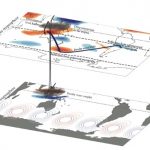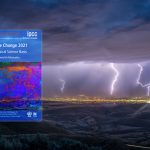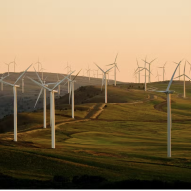 September 7, 2021 3:58 pm
Published by Climate Extremes
September 7, 2021 3:58 pm
Published by Climate Extremes
Drought is a major risk to Australia with extended periods of drought affecting our social, economic and environmental systems. The newly released report by the Intergovernmental Panel on Climate Change contains significant new assessments of the science and future projections of drought.
 September 7, 2021 12:17 pm
Published by Climate Extremes
September 7, 2021 12:17 pm
Published by Climate Extremes
To better understand the implications of the latest climate science for Tasmania, this brief combines information from the IPCC AR6 WG1 report, with regional assessments that contributed to the UTAS Blueprint for a climate-positive Tasmania, and expertise from the Australian Research Council Centre of Excellence for Climate Extremes (CLEX). The regional information is based on Tasmania-specific downscaled modelling undertaken by Climate Futures for Tasmania.
 September 3, 2021 8:51 am
Published by Climate Extremes
September 3, 2021 8:51 am
Published by Climate Extremes
It has long been suggested in the literature, and discussed casually by meteorologists, that rainfall in Melbourne often occurs as lines of precipitation. However, this had yet to be quantified. CLEX researchers analysed 15 years of radar data from the Australian Radar Archive, using an objective method to identify and track these ‘linear systems’ based on radar reflectivity, size, and shape characteristics.
 September 1, 2021 12:24 pm
Published by Climate Extremes
September 1, 2021 12:24 pm
Published by Climate Extremes
Climate Australia host Lee Constable is joined by the chief investigators in the Drought team of the ARC Centre of Excellence for Climate Extremes – Prof Nerilie Abram, Prof Jason Evans and Dr Andrea Taschetto. Along the way, Lee discovers why drought is such a tricky topic to explore for climate scientists and why understanding how droughts may change in the future is one of the wicked problems of climate change.
 September 1, 2021 12:13 pm
Published by Climate Extremes
September 1, 2021 12:13 pm
Published by Climate Extremes
Climate Australia host Lee Constable is joined by CLEX Media and Communications Manager Alvin Stone; Research Fellow at Monash University and founder of Skeptical Science Dr John Cook; and Deputy Head of the UNSW School of Psychology Prof Ben Newell to explore the current research around communicating climate science
 August 27, 2021 11:25 am
Published by Climate Extremes
August 27, 2021 11:25 am
Published by Climate Extremes
CLEX researchers have overturned a scientific paradigm that has existed for 50 years. New research published in Nature Geoscience shows the massive convection caused by the ocean just north of Australia, causes a chain reaction that is strong enough to put an almost permanent dent in the powerful winds that circle the Antarctic.
 August 25, 2021 3:37 pm
Published by Climate Extremes
August 25, 2021 3:37 pm
Published by Climate Extremes
The Paris Agreement requires countries to commit to reducing their greenhouse gas emissions to ensure that the global average temperature remains well below 2°C above pre-industrial levels and to pursue efforts to limit the temperature increase to 1.5°C. But how likely are we to meet these targets?
 August 17, 2021 10:38 am
Published by Climate Extremes
August 17, 2021 10:38 am
Published by Climate Extremes
The ocean’s much larger heat capacity acts as “memory” suppressing the atmosphere’s “high-frequency variability” (over time scales of weeks) while producing oceanic motions that vary over longer time scales. This paradigm aims to explain how low-frequency variability emerges in the ocean. But, recently, this paradigm has been challenged.
 August 9, 2021 6:00 pm
Published by Climate Extremes
August 9, 2021 6:00 pm
Published by Climate Extremes
Australian researchers in the ARC Centre of Excellence for Climate Extremes have made major contributions to the 2021 IPCC Working Group 1 report, through the authorship of the report, review and the many scientific papers cited in the report.
 August 9, 2021 1:44 pm
Published by Climate Extremes
August 9, 2021 1:44 pm
Published by Climate Extremes
Nerilie Abram, Australian National University; Andrew King, The University of Melbourne; Andy Pitman, UNSW Sydney; Christian Jakob, Monash University; Julie Arblaster, Monash University; Lisa Alexander, UNSW Sydney; Sarah Perkins-Kirkpatrick, UNSW Sydney; Shayne McGregor, Monash University, and Steven Sherwood, UNSW Sydney The much-awaited new report from the Intergovernmental Panel on Climate Change (IPCC) is due later today. Ahead of the release, debate has erupted about the computer models at the very heart of global climate projections. Climate models are one of many tools scientists use to understand how the climate changed in the past and what it will... View Article










